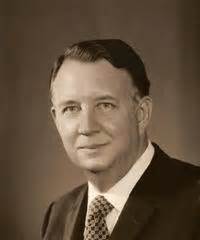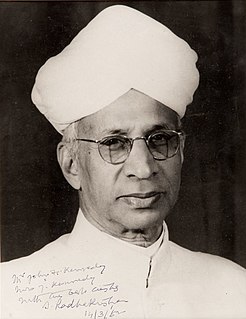A Quote by Ayn Rand
They had rejected the soul-body dichotomy, with its two corollaries: the impotence of man's mind and the damnation of this earth; they had rejected the doctrine of suffering as man's metaphysical fate, they proclaimed man's right to the pursuit of happiness and were determined to establish on earth the conditions required for man's proper existence, by the "unaided" power of their intellect.
Related Quotes
A Call for Revolution, 1993 Libertarianism is rejected by the modern left - which preaches individualism but practices collectivism. Capitalism is rejected by the modern right - which preaches enterprise but practices protectionism. The libertarian faith in the mind of man is rejected by religionists who have faith only in the sins of man. . . . The libertarian insistence that each man is a sovereign land of liberty, with his primary allegiance to himself, is rejected by patriots who sing of freedom but also shout of banners and boundaries.
It is God's earth out of which man is taken. From it he has his body. His body belongs to his essential being. Man's body is not his prison, his shell his exterior, but man himself. Man does not "have" a body; he does not "have" a soul; rather he "is" body and soul. Man in the beginning is really his body. He is one. He is his body, as Christ is completely his body, as the Church is the body of Christ
The doctrine of pre-existence pours a wonderful flood of light upon the otherwise mysterious problem of man's origin. It shows that man, as a spirit, was begotten and born of heavenly parents and reared to maturity in the eternal mansions of the Father, prior to coming upon the earth in a temporal body to undergo an experience in mortality.
Mind you, I have had in my sojourn on earth as good a time of it as any man, so I can speak with some knowledge. A writer in the Manchester Guardian who is unknown to me lately described me as "the richest man in the world." That sounds a pretty big order, but when I come to think it out I believe he is not far wrong. A rich man is not necessarily a man with a whole pot of money but a man who is really happy. And I am that.
This philosophical postulate that the end of all being is the happiness of man has been sort-of covered over with evangelical terms and biblical doctrine - until God reigns in heaven for the happiness of man, Jesus Christ was incarnate for the happiness of man, all the angels exist and ... everything is for the happiness of man - and I submit to you that this is unchristian.
This is the doctrine that we preach; if a man be saved, all the honor is to be given to Christ; but if a man be lost, all the blame is to be laid upon himself. You will find all true theology summed up in these two short sentences, salvation is all of the grace of God, damnation is all of the will of man.
If you are going to help people discover God's original will for them, we've got to know what that will is, and He said it very clear in Scripture: He created man to have to dominion over earth. He wanted to establish man's authority on earth to represent heaven on earth, and most of our theological philosophy is completely opposite of that.
Happiness and the absurd are two sons of the same earth. They are inseparable. It would be a mistake to say that happiness necessarily springs from the absurd discovery. It happens as well that the felling of the absurd springs from happiness. "I conclude that all is well," says Oedipus, and that remark is sacred. It echoes in the wild and limited universe of man. It teaches that all is not, has not been, exhausted. It drives out of this world a god who had come into it with dissatisfaction and a preference for futile suffering. It makes of fate a human matter, which must be settled among men.
Observe that the body of man is confined to a small place; it covers only two spans of earth. But the spirit and mind of man travel to all countries and regions - even through the limitless space of the heavens - surround all that exists, and make discoveries in the exalted spheres and infinite distances. This is because the spirit has no place; it is placeless; and for the spirit the earth and the heaven are as one since it makes discoveries in both.
The word Atman (Soul) means the "breath of life". Atman is the principle of man's life, the Soul that pervades his being, his breath, his intellect and transcends them. Atman is what remains when everything that is not the self is eliminated. It is the unborn and immortal element in man, which is not to be confused with body, mind or intellect.
It is always a great honour to mention a truth which has not become widespread yet. One of these truths is that man has no soul; he has only 'body' and 'mind'. Man's unshakable belief on the soul will not change this scientific truth! No belief can be higher than the scientific truths! Man can be born, can walk and work and can think without owning a mysterious and an immaterial soul! The soullessness of the man is a great tragedy both for the man and for the religion. But Man, contrary to the religion, will come out with triumph from this tragedy.
On the earth, satellite of a star speeding through space, living things had arisen under the influence of conditions which were part of the planet's history; and as there had been a beginning of life upon it, so, under the influence of other conditions, there would be an end: man, no more significant than other forms of life, had come not as the climax of creation but as a physical reaction to the environment.
This process, this method necessary to man's survival and prosperity upon the earth, has often been derided as unduly or exclusively "materialistic." But it should be clear that what has happened in this activity proper to man's nature is a fusion of "spirit" and matter; man's mind, using the ideas it has learned, directs his energy in transforming and reshaping matter into ways to sustain and advance his wants and his life. Behind every "produced" good, behind every man-made transformation of natural resources, is an idea directing the effort, a manifestation of man's spirit.





































